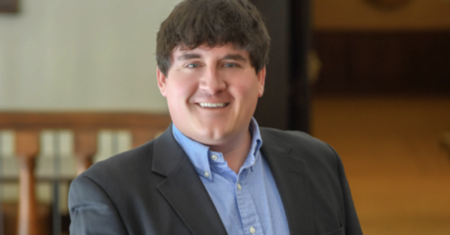There’s no doubt about it: School social media management presents unique and pressing legal challenges for PR and communications professionals, administrators, educators, students, parents, and communities. Legal risks and challenges abound—and the stakes are high! That’s why we’re calling in the experts. We sat down with KSB School Law’s Bobby Truhe—experienced attorney and school law expert—for answers to some of our most pressing questions. Here’s what he had to say about supporting staff and students through safe and secure social media management.
Class Intercom: Let’s start with rogue social accounts. Tell us more about accounts run by someone outside of or otherwise not employed by a school or district.
Bobby Truhe: There are some obvious issues, like accounts that are mistaken as official school accounts by students and patrons. We’ve seen a lot of troubling stuff posted on them, from fake snow day announcements to posts about controversial political positions a school does not have. Then you add in “rumor” or other types of fake accounts, and now you’re into territory that can cause a number of problems for schools and sometimes pose a real threat to students and staff. We rarely see fakes by people willing to own it; most often fake accounts are anonymous and tricky to track.

CI: What issues do schools face when it comes to rogue social media accounts?
BT: The problem is that for the most part, schools don’t have many options to address them. If they aren’t violating the terms of service of the app the fake account is using, they may not get shut down simply just because they are confusing. Trying to shut them down by school action or disciplining those who run them can raise First Amendment concerns, among others. This is why schools that have a well-run and reliable social media presence can avoid those outside accounts popping up and causing confusion. It’s also why education on digital citizenship, especially for students and parents, is so critical for schools.
CI: How can schools protect their teachers from issues related to social media without stifling their voice?
BT: The biggest thing is making sure staff are clear on what is permissible and what is not. Staff members play such a vital role in a school’s culture, and they have a huge impact on a school’s perception. It’s largely a training and education issue, for everyone. Whether you’re talking about professional boundaries or First Amendment limitations, there are lots of things to consider and train on.
CI: What types of training should schools consider?
BT: Sure. So, school officials and employees generally can’t use school resources for personal purposes, and those rules tend to have brighter lines that can be avoided with good training. School employees generally do not exercise First Amendment rights while on duty, and their off-duty posting is also somewhat limited by the impact of their posts on the school and their effectiveness as teachers. Well-done training and well-written policies on staff social media use mindful of these rights and limitations are a must, but there is no substitute for good training for administrators and staff.
CI: Talk a little bit about social media policies. Why are these important and what should schools and districts consider with crafting and implementing them?
BT: There is a lot to balance when it comes to crafting lawful and effective policies around social media use–for staff and for students. There are rights and restrictions on both sides that cause friction and sometimes conflict. Well-written policies balance these things while also providing practical help for school employees and administrators tasked with enforcing them. It’s tough enough to understand all of the legal issues around social media use, and ineffective policies can make it much worse. If a school can’t look at its policies and find them helpful for everyone to understand the rules, they aren’t worth much and may be exacerbating the problem.
”There is a lot to balance when it comes to crafting lawful and effective policies around social media use—for staff and for students. There are rights and restrictions on both sides that cause friction and sometimes conflict. Well-written policies balance these things while also providing practical help for school employees and administrators tasked with enforcing them.
Bobby Truhe, Attorney at KSB School Law
More Resources & Information
Interested in learning more on this topic? Class Intercom’s Dr. Jill Johnson welcomed Bobby and colleague Karen Hasse (both of KSB Law) for a free webinar: School Social Media Legal Risks & Challenges. Access the recording below.
